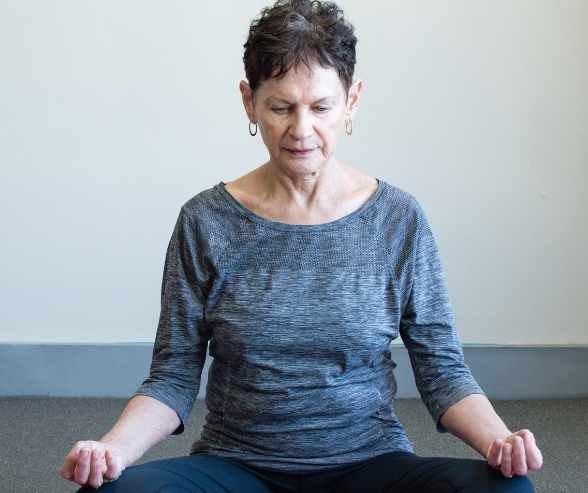As we age, it’s important to stay healthy and maintain a robust lifestyle. But while aging can sometimes bring on feelings of loneliness or isolation, there are simple steps that you can take to ensure that you remain in the best possible health as you get older. Here are 10 healthy habits to incorporate as you age that will help you not only feel better physically but also emotionally connected to your community.

By following these 10 healthy habits below, you’ll be able to promote good physical health and foster new relationships along the way! Read on for more details about how these tips can help enhance your quality of life as you grow older gracefully.
What Is Healthy Aging?
Healthy aging is an important part of life. It’s never too late to start adopting amazing habits that can help you age better. Whether it’s exercising regularly, eating a balanced diet or getting enough sleep – the key lies in leading a lifestyle that promotes good health and well-being.
There are many things we can do to stay healthy as we get older. Making time for movement such as walking, swimming, dancing or using weights helps maintain strength and balance while keeping us fit. Eating nutrient-rich foods like fruits, vegetables, and whole grains provides the necessary vitamins and minerals which our bodies need to function properly. Additionally, making sure we manage stress levels by taking breaks throughout the day and doing activities that make us happy can keep our mental health in check.
By setting small achievable goals each day and sticking with them over time, we can gradually create healthier habits that will improve our overall well-being and help us age gracefully. Small changes don’t have to be overwhelming – they all add up! So why not take steps today toward living a more fulfilled life?
The Benefits Of Healthy Habits
Aging is a natural part of life, but it doesn’t have to be synonymous with poor health. By adopting healthy habits, you can enjoy the benefits of aging well and stay active for years to come. Physical activity, healthy lifestyle choices, and whole foods are all essential components of a plan that will help keep your body strong as you age.
1. Spend Time In Nature And Engage In Activities That Bring You Joy And Relaxation.

Nothing beats spending time in nature. Taking the time to get outside and explore your surroundings can do wonders for your mental health and well-being. Engaging in activities like walking or biking outdoors helps us stay connected to our natural environment while providing numerous physical and emotional benefits.
Not only should we take advantage of these outdoor opportunities, but also look for ways to incorporate activities that bring us joy into our daily routine. From gardening to painting, sports, or dancing – finding something you truly enjoy is key for a balanced lifestyle. Not only does this help maintain our mental wellness, but it’s also an important part of relaxation which is essential for all ages.
Making sure we’re taking care of ourselves as we age isn’t just about hitting the gym; it’s about making sure we commit some time each week to pursue what brings us happiness too! Research has shown that having meaningful experiences with friends and family is one of the best things we can do for our overall well-being. Being outside in nature while doing these activities is an added bang for your buck with soaking up the Vitamin D and helping regulate your circadian rhythm. So let’s make sure those moments are cherished by committing to spend more time in nature and engaging in activities that bring us joy and peace of mind.
2. Keep Up With Regular Check-Ups And Screenings At The Doctor’s Office To Maintain Good Health As You Age.
If you’re looking to adopt healthy habits as you age, one of the most important things to consider is screening for age-related health risks. Regular screenings can help find problems early or even prevent them and could be vital in maintaining your well-being.

It can be difficult to go to the doctor when feeling fine, but these appointments are crucial in helping us catch any issues early on before they become more serious problems. Talk to your doctor about what tests or exams you should be getting based on your age and family history. These preventive health measures will help ensure that you stay as healthy as possible while you continue to get older.
An initial step for adults over 40 should always include an annual physical with a doctor who will review your medical history and check your vitals such as blood pressure, weight, height, cholesterol levels, etc. Additionally, if there are any other specific issues that apply to you from diabetes to heart disease it’s wise to get screened more regularly. It’s never too late to start taking preventive action so don’t hesitate!
On top of this, women should also get regular mammograms after they turn 40 (or earlier depending on individual risk factors). Furthermore, men may need prostate cancer screenings which should begin at age 50 (again depending on individual risk factors). Screening tests are essential tools in helping identify potential diseases before they become serious and sometimes even life threatening. So make sure you follow through and stay up-to-date with all necessary exams!
Overall, making an effort to see your doctor often ensures that you maintain good health over time. Don’t let fear of bad news stop you from taking care of yourself – those check-ups may just save your life one day!
3. Take Proactive Steps To Prevent Falls, Like Using Assistive Devices And Avoiding Slippery Surfaces When Walking Around Your Home Or Outdoors.
As we age, it’s important to take proactive steps in order to keep ourselves safe and healthy. This includes avoiding slippery surfaces when walking around the home or outdoors. By taking this precautionary measure, you can avoid potential falls which are especially dangerous for seniors.
Healthy aging should be a priority for everyone regardless of their age; it starts from being mindful of our safety when out and about and taking measures like using assistive devices where necessary. With these habits in mind, you’ll find that living happily into old age becomes easier each day!
4. How To Make Healthy Food Choices
Making nutritious food choices is an important part of staying in shape and maintaining a good quality of life. Healthy eating can help us age with vitality while avoiding chronic medical conditions like high blood pressure and cholesterol. A nutrient-dense diet can even help brain function and prevent type 2 diabetes, Alzheimer’s, and dementia. Let’s explore how we can make smart decisions when it comes to our diet.
First, let’s focus on fresh fruits and vegetables. Eating plenty of these will provide the body with essential vitamins, minerals, and fiber that are necessary for overall health. We should strive to eat at least five healthy servings of these per day – this doesn’t have to be boring: try adding some spices to your veggies or buying frozen fruits/vegetables if you’re short on time.

Whole grains are also very helpful when it comes to eating well as they contain magnesium which helps regulate blood sugar levels and fiber which makes us feel fuller longer. Try incorporating whole grain bread into meals, having oatmeal for breakfast, or swapping out white rice for brown during dinner time! Also look out for added sugars in foods such as cereals, yogurt, or processed snacks – too much added sugar can lead to weight gain over time so we want to limit our intake whenever possible.
By making mindful decisions about what we put in our bodies, we can take proactive steps toward leading healthier lives now and into the future. It takes practice but soon enough it’ll become second nature – just remember that every small change counts!
5. Taking Care Of Your Mental Health
Taking care of your mental health is just as important as making healthy food choices. It can be hard to make the right decisions when it comes to taking care of yourself, but there are some simple tips that you can use to help keep your mind and body in balance.

First, take time for yourself each day to relax. Find a quiet spot and practice mindfulness or do something calming like yoga or reading a book. This will help reduce stress and anxiety levels which can have long-term effects on your physical wellbeing too.
Second, find ways to connect with other people even if it’s from home through virtual platforms such as Zoom or Skype. Having supportive relationships is essential for our emotional health and feeling connected so don’t let social distancing stop you from reaching out! Seeking out a therapist is also a great habit for older adults to adopt. Talk with your doctor for a referral to a therapist.
We all need to remember that taking care of ourselves mentally should not be overlooked! With these few steps we can stay ahead of the game and ensure that we continue living life happily and healthily into our later years.
6. Get Moving: Physical Activity For Healthy Aging
As we age, our physical health is a priority. Staying physically active is key to keeping our bodies healthy and strong. Exercise can help improve bone health, reduce the risk of falls and injuries, strengthen muscles, increase energy levels, promote better sleep, and maintain mental well-being – all important for aging well!

Getting moving doesn’t have to be hard work either; it just needs to become part of your daily routine for at least 30 minutes a day. We’re not talking about becoming an Olympic athlete overnight – even if you don’t have time for a full workout every day, taking small steps like walking around the block or going for a swim once a week can make a big difference.
Physical activity isn’t only beneficial from a physical perspective; it’s also great for boosting self-esteem and improving overall emotional well-being. Working out with friends or joining local fitness classes is an excellent way to stay socially connected while getting in shape. So take those first few steps today towards being more active and start reaping the benefits right away!
7. Don’t Forget Quality Sleep
Getting quality sleep can help maintain a positive attitude and reduce the risk of health problems. Lack of sleep can cause premature aging! Improve your health and make sure to get the right amount of sleep for you.

There are many things that can interfere with quality sleep such as stress or drinking caffeine too late in the day. To ensure that your sleeping patterns remain on track, create a bedtime routine that helps you wind down before hopping into bed, like reading or meditating. If needed, talk to your doctor about any potential medications or supplements they may suggest to aid in better sleep. [This melatonin may work for better sleep]
Finally, be sure to stick to consistent hours when it comes to hitting the hay. Going to bed at roughly the same time every night will help keep your body’s internal clock ticking along smoothly so you can get those much-needed zzz’s!
8. Maintaining A Healthy Weight
It’s no secret that maintaining a healthy weight promotes healthy aging. After all, it helps reduce your risk of heart disease, diabetes, and other serious health issues. It will not only increase your life span, but it will also help you look younger and feel better. But achieving and sustaining a healthy weight isn’t always easy, especially as you age.
That’s why it’s vital to adopt healthy habits when it comes to maintaining a healthy body weight throughout your life – even if the changes are small at first. Exercise regularly, watch what you eat and drink, get enough sleep and take time out for yourself – these are just some of the ways that help people lose weight.
Of course, there will be times when keeping up with this routine becomes difficult due to work or family commitments. That’s why it’s important to find balance in your lifestyle and make sure you don’t put too much pressure on yourself. With dedication and perseverance, you can achieve long-term results without compromising on your quality of life!
9. Seek Out Support If Needed; Talking Through Concerns Or Issues With A Qualified Professional Can Help One Age Gracefully While Managing Stress Levels Better Throughout Life’s Transitions

Talking through concerns with a qualified professional can be an invaluable resource to help you live your best life as you age. Mental health should not be taken for granted and having someone to talk to can provide the support needed during difficult times or transitions in life.
It is important to recognize when it’s time to seek out help, especially during challenging moments that may feel overwhelming. Talking through these issues with someone who understands them can help bring clarity and peace of mind while assisting in managing stress levels better throughout life’s transitions.
Having access to this kind of emotional support not only helps individuals cope but also serves as a reminder that we are never alone no matter our stage of life. It is essential to make sure mental health is cared for just like physical health!
10. Stop Smoking And Live Longer
It’s no secret that smoking is bad for your health and can speed up the aging process. From increasing the risk of developing cancer to causing heart disease, quitting smoking can help you live longer and age gracefully. Quitting smoking has many benefits – not only will it reduce risks associated with various illnesses, but it may also boost energy levels and improve overall physical fitness.
Ask your doctor for help if you are having difficulty giving it up. They may have resources that make the process easier.
In addition to this, there are plenty of resources available online that provide tips on how to quit smoking safely and effectively. With simple steps such as setting realistic goals and seeking out support from friends or family members when needed, anyone can take back control of their life by giving up smoking and taking good care of themselves while they age.

It’s Never Too Late To Change Habits For Healthy Aging
Making small changes that can have a big impact on our health and well-being as we age. It’s important to recognize that even if you haven’t been living in the most healthy way, it’s not too late to start making better choices for yourself. Changing habits is hard, but with dedication and perseverance, it can be done!
Making positive healthy changes now could help reduce your risk of developing serious medical conditions later in life. Even something as simple as eating more fruits and vegetables or getting enough sleep can go a long way toward keeping us healthier over time. Small steps like these add up quickly when combined together into a comprehensive plan.
We needn’t feel overwhelmed by the prospect of changing our habits; taking things one day at a time makes this process much easier and less daunting. Making conscious decisions each day about how we want to live will ensure that we are doing what we can to protect ourselves from potential age-related health risks down the line. So don’t wait – start today and commit to improving your overall well-being!
Conclusion
Aging is inevitable. By making small changes and keeping up with regular check-ups, you can make a big difference in your physical and mental health as you age. Adopting these new habits now will help ensure that you live life to its fullest for years to come.
You don’t have to do it alone—talking through concerns or issues with a qualified professional is highly beneficial when it comes to managing stress levels better throughout life’s transitions. So if you need some extra support along the way, reach out!
At the end of the day, investing in yourself and taking care of your health are keys to enjoying every stage of life. You deserve it! No matter how old we get, by adopting good habits today, we can all look forward to aging gracefully tomorrow.

